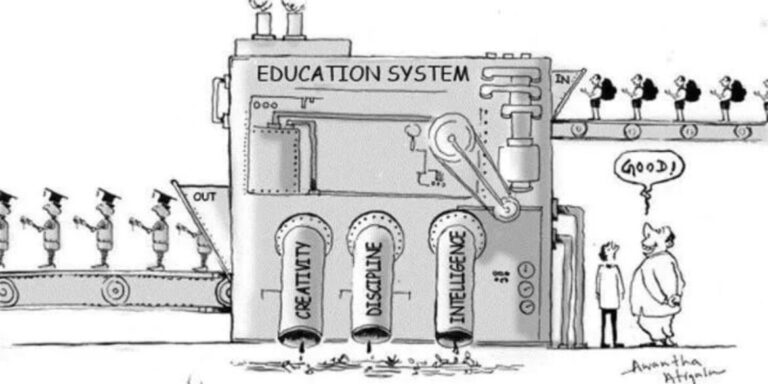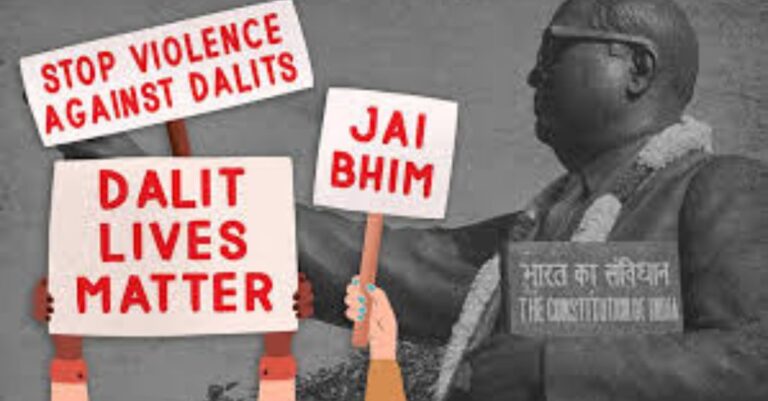By Arvind Saxena
If health warnings on cigarette packs could deter people from smoking, why can’t we have similar hazard warnings on social media platforms? Perhaps such warnings will compel users to question if they really need these services.
The unchecked use of social media platforms has led to rising incidents of suicide, eating disorders, unrealistic beauty standards, bullying, sexually addictive behaviour among the children. Child rights advocates have for long asserted that giant social media companies were not doing enough to protect users from the ill effects of their platforms.
Massive public mobilisations were seen across the world and most responsible nations backed away from large scale adoption of nuclear energy for civilian projects. All promises of clean and boundless energy, safety measures etc. were rejected by the people. Strong non-proliferation treaties and laws also ensured restrictions on the widespread use of nuclear weapons.
We have also witnessed public debates on the health hazards of ‘processed and fast food’, ecological perils of big hydroelectric, transportation and mining projects and dangers of introducing new pharmaceutical products without adequate clinical trials. Public awareness campaigns against tobacco effectively reduced smoking to a socially unacceptable behaviour.
The debate against use of fossil fuels continues as we grapple with global warming and climate change. But we don’t see IT causing any similar damage to our natural habitat and causing disease, do we? Their offices are made of shiny steel and glass. Right? No, the ubiquitous IT sector is polluting another natural resource, perhaps as precious as the air, water and land which we are struggling to save.
It is polluting our minds, it is giving rise to mental issues and playing havoc with our social equilibrium. If producers of spurious or potentially hazardous technology and substances could be hauled up for exemplary damages then why are we not seeing enough regulatory activity against the global IT giants? The moot point is that public scrutiny alone can safeguard public interest, not pro forma apologies and promises of “industry-wide self-regulation”. We need public spirited regulation and severe penalties for those selling deleterious technology to unsuspecting masses. But before that we need widespread public enquiries and debates on IT and, now the even bigger social disrupter, AI.
The occasional article in newspapers and journals on how IT and Social Media tools influence public opinion, and thus elections, in the ‘free world’, or how algorithms are designed to spread fake narratives, outright lies and create a ‘need’ for unnecessary and useless goods and services are helpful. But we are still not seeing enough disclosure on how digitisation of all data and processes is opening up lives of people, institutions and countries to ceaseless surveillance, paving the path for massive subversion of nations and coercive control over common people.
Peoples’ lives were supposed to be personal under transparent governments, today we have turned this paradigm on its head ~ opaque governments pry into each sphere of the common man’s life.
Do some of you get a sense that I am opposed to technology? I am most certainly not. With an M.Tech. in Systems Management from one of our most reputed institutions ~ where we were working on an IBM-360 mainframe, when most of the world did not know what a computer was, I am a great believer in how technology has helped humankind emerge from a life of drudgery, and how the industrial revolution was perhaps the greatest wealth creator in recorded history.
The difference is that the technology of the last two hundred years emerged out of felt needs of people; it was developed to ease the travails of industrial and agricultural work. So we consciously accepted that the price we paid in terms of ecological damage for the benefits of a better lifestyle, was unavoidable ~ at least in the short term. The IT sector, on the other hand, creates ‘products’ and then hunts around for people they can be sold to, of course making false claims of increasing efficiency and transparency.
It thus invests large sums of money to create unnecessary demands. Does it sound like the junk food and sugary drinks industry? Well, it is exactly that. Just as junk food gives you an energy rush ~ a quick pick me up, the efficiency promised by IT ‘products’ is also nebulous, and the dependence, or craving for more of the same, keeps growing.
IT and the internet are certainly amongst the most powerful and useful tools developed by man. The technology has revolutionised the way we work and collate information for making better and informed decisions. But then so was nuclear power, was it not?
The difference is that while access to nuclear technology was restricted to a few highly qualified educated and trained scientists, we have let loose the monsters of IT and social media onto every halfeducated and even uneducated Tom, Dick and Harry. Yes, they feel empowered because they can access information without being educated, albeit without the faculties to discriminate between facts and falsehood.
Therein lies the danger. We must therefore start by asking questions and disabuse ourselves of certain notions about this technology propagated so strenuously over the last few decades.
You might say that the IT sector is providing highly paid jobs for our young, so what is wrong with that? Since the remunerations are fairly high, start by asking what these jobs are? Why the salaries are so high is a separate question which needs examination. Let us focus on the nature of these jobs.
These are essentially of four types: The most challenging and creative ones are undoubtedly for writing original software, programming and systems analysis. Only a very few graduates land up jobs of this type.
The second category involves retrofitting existing software, tailoring it for specific consumers.They do nothing original but are the ‘Seventh Wonder’ type of tailors, who used to alter and refit your old suits. Still, they do add value to the products in the market.
The third category revolves around maintenance of IT systems and software which is about fixing malfunctions and bugs. Still there is some technical contribution involved here.
The fourth category of jobs, which draws the most number of youngsters is about data collection, processing of data, digital marketing and sale of the data processed by them.
Let us look into this proliferation of processed data. To begin, what is the reliability of this data, whose sample location, distribution, economic, social, ethnic, religious and cultural distribution is uncertain. Not everyone uses the internet, so are we collecting skewed information. All digital data can be manipulated, padded up through bot activity and tailored for, not just commercial, but also political objectives. Related question ~ if this data is so unreliable why are corporates using it for advertising and promotion of their business?
There is something very fishy here which is not dissimilar to the huge amounts of money which moves across national boundaries in the guise of buying media rights and broadcasting rights etc. for league sports and other big ticket events. This activity is suspiciously incestuous, with both the data buyers and data sellers somehow dealing in undependable products for the sake of creating huge financial transactions. The only other use for such humungous amounts of stolen data is for creating crooked data banks for fooling regulatory authorities, or worse for surveillance of the population.
If data is the new oil and the ‘captains of industry’ are salivating to cash in, then we must ask where this new oil is being mined from. If the data belongs to the people, as all physical national resources do, then who is permitting this mining activity? If there are no permissions or regulations governing this activity, then it is not mining ~ it is theft.
National data is sacrosanct and adversary intelligence agencies used to spend millions for accessing it.
Today by placing everything on-line and permitting private players to collect and process data, we have provided free access to all critical information for unauthorized use. The people have been rendered transparent and vulnerable while big corporates have created walls of secrecy around themselves. The more data we collect and process on activities of our citizens the more vulnerable the nation becomes to its misuse by big players, foreign agencies and global as well as domestic corporates.
We must now ask, where does the demand for more and more data come from? Who is asking for faster rates of data transfer? Why don’t nations demand a pause in introduction of 5G or 6G type of technologies when there are concerns about their radio interference and ionization levels, which can potentially affect safety of communications and cause damage to animal life, including human life? If the need is for vital activity like national security, we must let it be used for a select purpose by regulated institutions. Not by the people who are looking for avenues for more data theft, digital marketing and strengthening social media platforms.
Believe me, if there is war, you will find none of these IT advocates, or their progeny, on the frontiers. The soldiers will lose their lives as will civilians living in border areas, but our vile technology advocates, seeking high speed internet, will never be ‘collateral damage’. (Just mull how words can hide the horror of criminal activity?).
I sometimes wonder if the world of these data-hungry people living in the ‘fast lane’ has a single lane leading up to our ‘lava-hot’ borders in the North and the West! IT and AI are the backbone of a majority of our recent start-ups. Lot of youngsters have done very well through their innovative service aggregation platforms, or Apps. So, money is being made here ~ which should please us?
The problem is most of these Apps are producing nothing! No tangible goods and products, which are still dominated by old fashioned industrial establishments. If anything, these Apps are actually doing a disservice to the manufacturing sector by pushing down profit margins and also suppressing wages, even while they suck out transaction charges from the real producers.
Promising efficiency in delivery of services, they make industry unviable and promote a highly exploitative ‘gig economy’. A large number of these start-ups, including many big ones, end belly up in a short time, after their bogus business models break down. Please remember, in the new economic models, ‘Smart’ means ‘Street Smart’, i.e. you should have no qualms in fooling or cheating unsuspecting people if you can make money out of their ignorance. Reminds you of the snake oil seller?
At least he was not destroying normal social intercourse. The smart phone is the ultimate dumbing device known to man. So who is in charge of the IT systems which are replacing systems of say, school and college education, travel and hotel bookings, keeping records in government departments, Income Tax processing etc.? Yes, there was potential for corruption in our earlier systems but we also had systems to punish the deviants.
That we failed to use those provisions is another story. What is happening today is that the control has been taken away from trained and experienced people and handed over to a faceless, unfathomable system which overrides human ability to understand and empathize with fellow humans. How often have you got the feedback ~ system accept nahin kar raha, i.e. “system does not accept”? So, what is this system which has become more powerful than the highly qualified, trained and experienced officials who understand the working of their departments more than the people who designed the system?
Irrespective of how much interaction the IT system designers have with the organisation people, the system should remain a tool of the organisation, not the other way round. The data in the system and how it is processed is inaccessible to the officials but is available to the youngsters operating the system, youngsters who are not a part of the organisation and, more often than not, are contract employees or, at best, workers who will switch jobs before you can pronounce ‘whimsical. See the danger?
We will not be talking here of losses incurred by banks and the increasing instance of cyber frauds all of which can be traced to distancing of the system from trained personnel. Professionals have ceded space to semi-knowledgeable IT geeks, before whom they are rendered helpless. Have we ever wondered about the consequences of becoming dependent on IT tools?
There are movies which have shown how massive disasters could strike if these systems fail for one reason or another. How many of our young people can reach from place A to place B, in their country, state, town or even neighbourhood without using GPS? Most will be totally lost. Similarly, what happens to the much hyped driver-less cars if the GPS satellites go on the blink? Will they go haywire crashing into each other and things around them? Why don’t we resolve these questions first, before getting hooked to posting our selfies on social media – the most sickening manifestation of narcissism? Why do our political leaders gift smart phones, tablets and lap tops to students? These are definitely not required for conventional learning.
Good teachers and books are adequate for learning in schools and colleges. Why can’t the money be used for providing scholarships, books, educational tours and, yes, more well-paid teachers? No, we are not helping in the education of our young, the motive is to win votes ~ addictions and socially irresponsible behaviour be damned. We must question why we are being provided free internet connectivity. How do companies earn revenue when they provide a free service? Advertising is not the real answer.
The answer could lie in data theft, surveillance, spreading fake news, normalising hate and creating addictive dependence. Ever wondered who decides which pages get displayed on top when you do a web search about a person, place, event or news? Most of us assume that the algorithms display the pages which are viewed most often. Probably true, but then these views can be easily manipulated through fake accounts and bot activity, just as star ratings on select products can be manipulated on e-commerce sites. The greater danger is that the IT companies can decide the placement ~ for a price? This manipulation is worth its while because most users generally go through the top few pages before concluding they know enough about a topic.
So place the glorious stories on top and a person can be shown to be God’s own gift to mankind, or place the unsavoury stories on top and you could defeat a Presidential candidate in the US. Can IT and social media create wars? Disinformation is a potent weapon of non-conventional warfare. You can spread false narratives to inflame passions among the non-discerning masses, who can then be used to sub-serve political ends. This has been used in the past by dropping leaflets behind enemy lines, setting up clandestine radio stations or defaming leaders to sow dissension, create confusion and destroy the credibility of unfriendly power centres.
Look back at how the colour revolutions in Eastern Europe and the Arab Spring were engineered largely through social media. The potential for causing destruction is as massive as the thermo-nuclear bombs dropped on Hiroshima and Nagasaki. Now to the greater danger looming in front of us. Having read these two pieces and drawing from their own knowledge and life experiences ten of us could write ten vastly different papers, each one of which will shed light on different aspects of the subject.
Now let each writer have access to ChatGPT. The App will churn out a comprehensive paper of acceptable quality ~ but then it will be the same for all ten writers.
See the irony ~ some guys in hoodies have taken control of something as vital as knowledge, filtering out everything except what the program choses to throw up. So is IT a boon or a bane? We need to demand more information. Let us start asking tough questions now ~ before it is too late.
At stake is human ingenuity, insight, concern for others, respect for differences and the ‘Eureka’ experiences ~ a la’ Archimedes.
(The writer is former Chairman of the Union Public Services Commission. This article was published in the Statesman. It is lightly abridged.)




